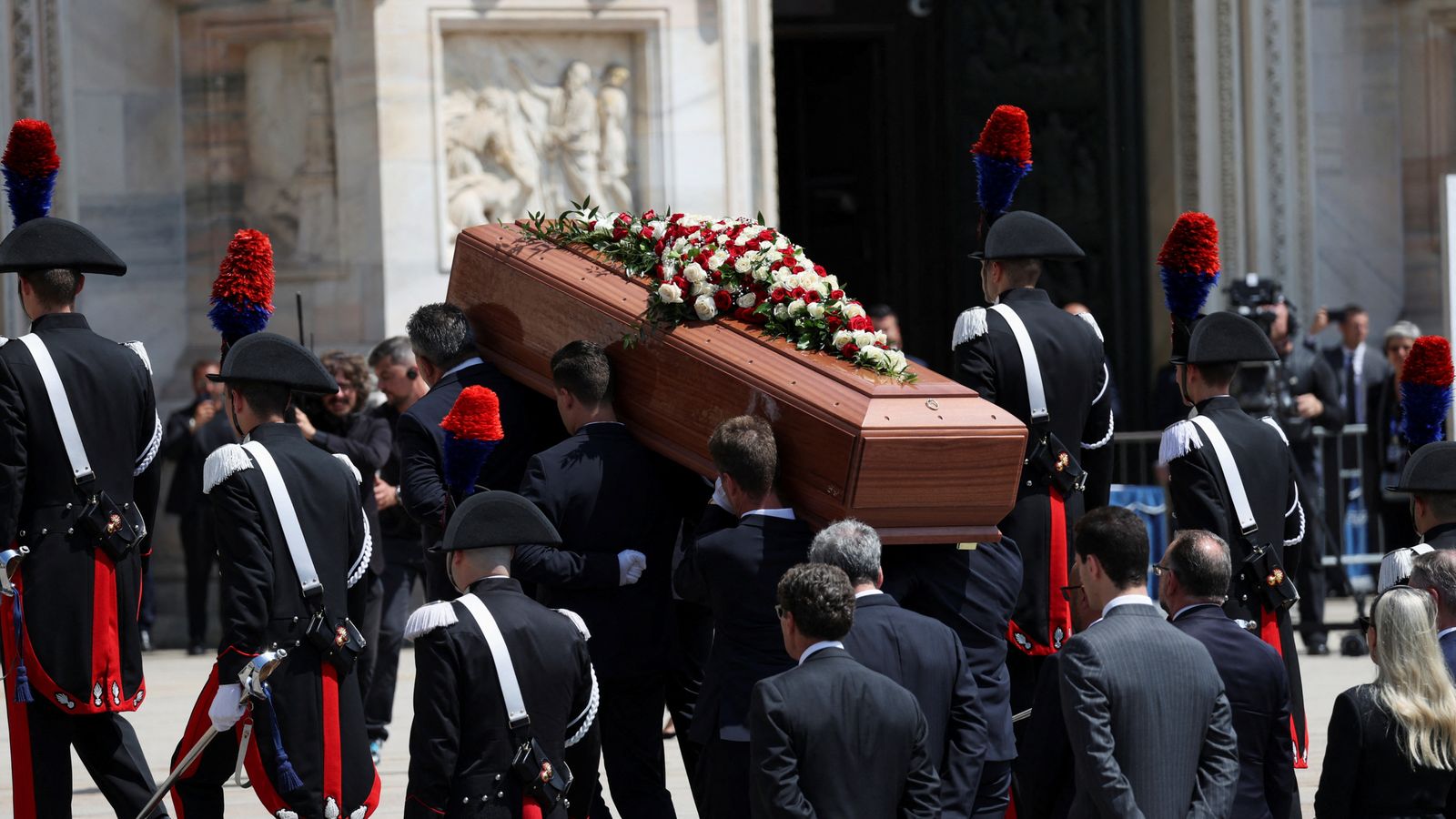Thousands of mourners have gathered to bid a final farewell to former Italian prime minister Silvio Berlusconi.
A state funeral was held in Milan on Wednesday, a national day of mourning, for the divisive and domineering four-time premier, who died on Monday aged 86 in a hospital where he was being treated for chronic leukaemia.
The ceremony was held in the city’s famous Duomo cathedral, with Hungarian President Viktor Orban among the high-ranking foreign dignitaries who attended.
Italy’s Prime Minister Giorgia Meloni – who faced criticism for her government’s decision to hold a state funeral and declare a rare national day of mourning – was also present at the funeral.
Crowds filled a piazza outside the Duomo to watch the service on two giant screens.
Read more:
What happens to Silvio Berlusconi’s business empire now he has gone?
Silvio Berlusconi’s most controversial political moments
His body will be cremated before his ashes are taken to the family mausoleum in the grounds of his villa in the northern town of Arcore, about 20km northeast of Milan, a family source said.
Mr Berlusconi’s coffin was expected to be transported to Villa San Martino ahead of cremation at the Valenziano Panta Rei Crematorium Temple, near the city of Alessandria.
Be the first to get Breaking News
Install the Sky News app for free
The mausoleum, built by sculptor Pietro Cascella in the early 1990s, is a white marble building with an underground mortuary, with a sarcophagus of the former Italian leader standing at the centre.
Mr Berlusconi’s family held a private wake on Tuesday at one of his villas near Milan.
International correspondent
Crowds of Berlusconi supporters gathered early at Milan Cathedral.
Many of them were waving Forza Italia flags, his political party.
All of them had come to mourn a man they thought had been a great Italian and an amazing leader of the country.
But the man – who started as a cruise ship crooner, went on to become a property and media baron and four times prime minister – was hugely controversial.
Unsurprisingly, his legacy is as complicated as it is divisive.
Silvio Berlusconi was a unique political talent and would be a forerunner for right wing populists to come.
He was the first post-modern politician. He didn’t offer voters a boring programme of policies, he offered something far more mercurial – himself.
Using his skill as an orator and his media power he created a cult of personality and became an electoral juggernaut.
Often embroiled in legal battles he railed against elites, portraying himself as an outsider and a victim.
In death though – afforded a state funeral and a national day of mourning – he has cemented his place, for better or worse, as a towering figure of the political establishment.
Certainly the most influential figure the nation has seen since Benito Mussolini.






